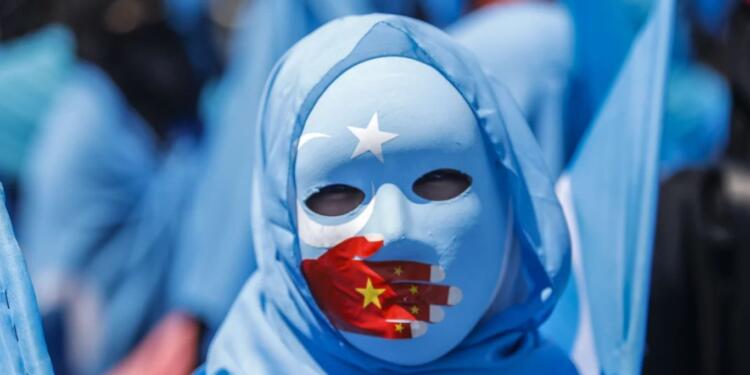For several years now, China has been tightening its iron grip around the Uyghurs, subjecting them to a brutal campaign of genocide, forced labour, and abductions that no longer remain hidden behind the walls of Xinjiang. These atrocities have left scars on the Uyghurs. But one specific case has sparked a light that calls for action against China’s disregard for human life.
Recently, Rahima Mahmut, Executive Director of the Stop Uyghur Genocide (SUG) campaign, has led efforts to expose the world as an equal complice in China’s brutal repression of the Uyghurs. The organization handed over a dossier to the fashion giant Shein, accusing the company of turning a blind eye to forced labor sourced from Xinjiang. Shein set to face a significant hearing on January 7, before the UK’s Business and Trade Select Committee.
The allegations provide irrefutable evidence that the giant’s supply chain has been stained by forced labour, an affliction that for decades has been imposed by the Chinese party in the area. The campaign group’s calls for Shein to be blocked from being listed on the London Stock Exchange, and for its business practices to be scrutinised for profiting of genocide. The link between Xinjiang’s cotton fields and these global supply chains is no longer a speculation.
More than 3 million Uyghur men and women are imprisoned in CCP’s notorious forced labour camps. These individuals, proud members of ancient culture, have become shackled by the Chinese Communist Party, their turns revolving as cogs to drive the engine of China.
Kalbinur Gheni’s story is one of the most heartbreaking examples. For six years, she has not seen her sister, Renagul, who disappeared into the Chinese government’s sprawling web of political re-education camps. Renagul, like thousands of others, was jailed for the “crime” of being Uyghur. Detained in Changi Women’s Prison, she works as a forced labour in sewing dresses for big conglomerates.
But it doesn’t stop there. The tragic case of Abdureqip Rahman provides chilling insight into how China’s extrajudicial power extends far beyond its borders.
Rahman, a young Uyghur man trafficked to Cambodia, thought he had escaped the iron fist of the Communist Party’s grip.
However, his desperate hope was crushed when he was handed back to Chinese authorities under the pretext of diplomatic cooperation. What followed next was his disappearance, into the abyss of Chinese detention centers.
According to the 2023 UN report, hundreds of thousands of people are enslaved in similar compounds across Southeast Asia. They are lured through fake online romances and bogus investment schemes. Knowingly, Rahman put himself in the hands of human smugglers to leave China, as it was his only way to get out. Tragically, Rahman’s story is just one of many. Hundreds and hundreds of Uyghurs, fleeing from China’s brutal repression in Xinjiang, have faced forced repatriation from countries like Thailand, Cambodia, and Pakistan. These nations are complicit in the suffering of the Uyghur people.
The United Nations, the western body designed to “protect” the world’s most vulnerable, has been failing miserably to act, with agencies like the International Organization for Migration (IOM) also increasingly turning a blind eye when it comes to Uyghur asylum cases.
These international failures only further entrench China’s reign of terror.
But even within China, resistance is often silenced through death. In 2019, Ibrahim Dawut, a former chemistry teacher and Uyghur language activist, was arrested just days before his daughter’s wedding. His crime? Advocating for the preservation of Uyghur language and culture in the face of a CCP-imposed Mandarin-language education policy.
After months of silence, Dawut’s family was notified of his death, with no explanation given. His body was buried in secret, his life reduced to a mere statistic in China’s ongoing campaign to erase Uyghur identity.
What’s even more appalling is how Beijing has weaponised the East Turkistan Islamic Party (ETIP) to further its propaganda. Using the Islamist threat as a cover, China has sought to justify its sweeping campaign of genocide, painting Uyghur independence as terrorism. China has been peddling the narrative of “Uyghur Mujahideen” in Syria to not only launch genocide in the Xinjiang but also the Uyghur activists abroad. This narrative has been perpetuated through international channels, aided by foreign intelligence agencies, painting Uyghur freedom fighters as extremists.

























